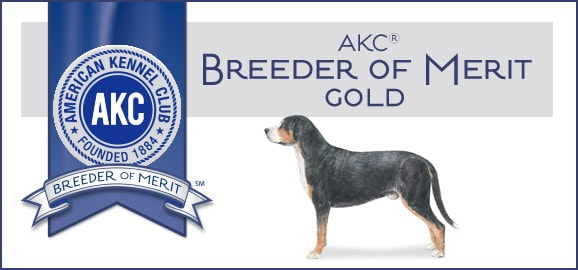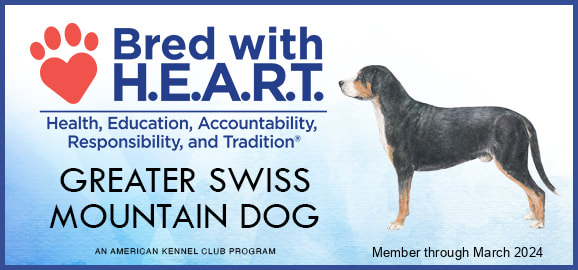GASTRIC DILATION (BLOAT) & VOLVULUS (TORSION)
Gastric Dilation is the technical name for what is commonly known as BLOAT, or a condition when the stomach becomes abnormally distended with gas, food, and/or liquid. Volvulus or Torsion occurs when the stomach twists on its axis. As the stomach expands with fluids, solids or air, it often then twists between the duodenum and the esophagus. When this happens, the stomach is clamped off at these two points causing even more pressure to build -- the dog cannot burp, vomit or pass gas for relief. As the pressure in the stomach grows, the stomach enlarges and begins to compress veins in the abdomen, restricting blood flow back to the heart, causing a blood pressure drop and shock. In the meantime the stomach tissue becomes necrotic, due to the disrupted blood flow, toxins may be released by the dying tissue and in some cases, the stomach could even possibly rupture. In the most severe torsion cases, very often both the stomach and the spleen will displace (exchange positions).
Bloat is an extremely dangerous medical emergency requiring IMMEDIATE attention from a veterinarian. If treatment comes too late, many bloating dogs will die a very painful death. Bloat is one of the leading causes of premature death in Greater Swiss Mountain Dogs. Any responsible Swissy owner should understand the risks of bloat in this breed, be able to recognize the symptoms and have a plan of action in place, including a 24-hour emergency vet within 20 minutes from their home.
As for what really causes bloat, there is no easy answer. That said, GDV occurs most often in large breed dogs with deep chests. Other factors that may play a role are food-related factors (how much, how often, what kind), stress or anxiety levels, exercise too soon before or after mealtime, gulping of food/water, age and heredity. Many of these factors are beyond our control, so we try to control what we can by feeding our dogs high quality foods (meat-based, with no processed grains), adding probiotics or enzymes to assist digestion, avoiding soy products and brewer's yeast. We also want to feed smaller meals at least twice a day, monitor the amount of water ingested before and after each meal, and limit our dog's activity 30 minutes before and 60 minutes after meals.
The single most important thing you can do, however, is to KNOW the signs of bloat and get a bloating dog to a vet immediately. Secondarily, consider having a gastropexy surgery performed when your dog is spayed or neutered. During this procedure, the stomach is attached to either a rib or the abdominal wall. While the gastropexy will not prevent Bloat, it does go a long way toward preventing a torsion condition. Even with a gastropexy, a bloating dog should still be seen by a vet.
Bloat is an extremely dangerous medical emergency requiring IMMEDIATE attention from a veterinarian. If treatment comes too late, many bloating dogs will die a very painful death. Bloat is one of the leading causes of premature death in Greater Swiss Mountain Dogs. Any responsible Swissy owner should understand the risks of bloat in this breed, be able to recognize the symptoms and have a plan of action in place, including a 24-hour emergency vet within 20 minutes from their home.
As for what really causes bloat, there is no easy answer. That said, GDV occurs most often in large breed dogs with deep chests. Other factors that may play a role are food-related factors (how much, how often, what kind), stress or anxiety levels, exercise too soon before or after mealtime, gulping of food/water, age and heredity. Many of these factors are beyond our control, so we try to control what we can by feeding our dogs high quality foods (meat-based, with no processed grains), adding probiotics or enzymes to assist digestion, avoiding soy products and brewer's yeast. We also want to feed smaller meals at least twice a day, monitor the amount of water ingested before and after each meal, and limit our dog's activity 30 minutes before and 60 minutes after meals.
The single most important thing you can do, however, is to KNOW the signs of bloat and get a bloating dog to a vet immediately. Secondarily, consider having a gastropexy surgery performed when your dog is spayed or neutered. During this procedure, the stomach is attached to either a rib or the abdominal wall. While the gastropexy will not prevent Bloat, it does go a long way toward preventing a torsion condition. Even with a gastropexy, a bloating dog should still be seen by a vet.

